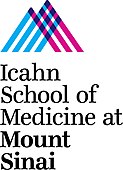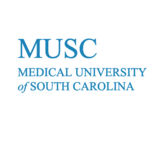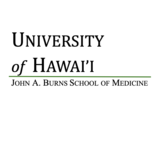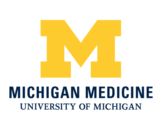Wikipedia:Wikipedia in Health Professions Education
Wikipedia in Health Professions Education

Welcome to this toolkit for health professions educators interested in integrating Wikipedia into their courses. We're glad you're here.
This site is a resource for a community of HPE instructors who are interested in using Wikipedia and Patient Centered Outcome Research (PCOR) in their courses, whether it be for the first time, or as part of a lifelong professional commitment.
It provides basic resources for editing and disseminating content through Wikipedia, as well as links to a curated selection of published articles, brochures, Wikipedia resources, and videos to grow your practice for years to come. It also offers an introduction to PCOR as an exceptionally important source of research for including in health Wikipedia articles, given that the readership of these articles includes patients and their familiar, as well as health professionals.
This site is for you and by you. Your contributions are important and welcome!
Tools
[edit]Learn about teaching with Wikipedia and design your own course. This module offers a beginner's step-by-step guide, teaching resources, and teaching advice from other HPE Instructors. Resources also include a video of Dr. Amin Azzam, a clinical professor at the University of California, San Francisco UCSF School of Medicine and the University of California, Berkeley, discussing his experiences teaching medical students with Wikipedia.
Starting Your Own Course:
1
Learn the basics of what it means to be a Wikipedian, including how to edit health articles, with the help of the following resources:
Overview: An Introduction to Medical Editing
- Introduction to Wikipedia handbook: An introduction to Wikipedia editing (Wikipedia)
- Introduction to Wikipedia Medicine tutorial blog and video: Medicine Newbie Crash Course (Students4BestEvidence)
- Wikipedia Libraries training curriculum: Wikipedia + Libraries Training Curriculum (OCLC)
- Live stream demonstration: METRO Webcast Wikipedia and Medicine (Metropolitan New York Library Council)
2
You do not need a Wikipedia account to read and edit Wikipedia articles, but you will need a Wikipedia account to start your own WikiEdu course. By creating an account you will also gain access to a number of other useful Wikipedia resources and features.
- Benefits of creating an account article: "Why Create an Account?" (Wikipedia)
- Step-by-step account setup tutorial video: How to create an account on Wikipedia (Pete Forsyth).

3
It is important to have some familiarity with the process of editing in the Wikipedia space. The following tutorial page will help give you some practice on what it means to be a Wikipedian. It is geared toward newcomers, but it also offers links to help anyone more easily navigate Wikipedia editing.
- Practice editing: Introduction to Contributing to Wikipedia
4
Now that you've created an account and have some practical knowledge it's time to design your course. This process will look different for every instructor, but the following pages by the Wikipedia Education Foundation will help break some of this down and start you on your way to setting up your own HPE course.
- Teaching with Wikipedia: Teach with Wikipedia Start-up Page
- Understanding your course's dashboard: Explore Course Dashboards
- Orientation for instructors: Instructor Orientation Materials
- Extra resources: WikiEdu Resources for Instructors
5
From Wikipedia education program in medicine.
The following quotes are drawn from interviews conducted in 2020 and reported in Paolo C. Martin, Lauren A. Maggio, Heather Murray, John M. Willinsky, "Enculturating a Community of Action (CoA): A qualitative study of health professions educators’ perspectives on teaching with Wikipedia” (preprint here)
6
Wiki Education Wiki Education is 501(c) nonprofit organization designed to connect higher education and Wikipedia. Their Wikipedia Student Program includes a range of resources for university faculty who incorporate Wikipedia assignments into their courses.
Wikipedia Student Information Page and Editing Guides In response to numerous teaching initiatives on Wikipedia, Wikipedians created an information page with suggestions for developing student assignments editing Wikipedia. This page contains information for instructors on best practices for course design, including a specific section for editing medical articles.
Wikipedia relies on volunteer editors and the Wikipedia community provides many resources and guidelines about how to edit in Wikipedia. Some basic Wikipedia sites are listed here:
- Wikipedia:Reliable sources
- Wikipedia:Manual of Style/Medicine-related articles
- Wikipedia:Conflicts of interest (medicine)
- Wikipedia:Neutral point of view
Those who edit medical articles in Wikipedia follow strict guidelines, which include Wikipedia's Guideline for Reliable Sources for Medical Articles and Medical Manual of Style. We encourage educators to first familiarize themselves with these guidelines before sharing evidence on Wikipedia.
WikiProject Medicine WikiProject Medicine was developed to manage and help in curation of Wikipedia's medical articles. WikiProject Medicine has generated a number of resources that are helpful for university faculty who incorporate Wikipedia assignments into courses in the health care fields. WikiProject Medicine has created a resource to guide for new student editors of Wikipedia pages about healthcare. This notice for students includes information about proper Wikipedia editing formats and is designed to be added to student talk pages.
- Template (copy and past the following template onto student talk pages): {{subst:Medical student notice}} ~~~~
Teaching Resources
[edit]
Demonstration sites from our partners
This project engages four partners as demonstration sites. Explore their work, which includes articles they have written, descriptions of their courses, media coverage, and links to their course dashboards. These demonstration sites are training health professional students to appraise, translate, and embed research into Wikipedia.
Click the images below for information about each of our partner's work integrating Wikipedia into their HPE course dashboards.
Additional teaching sites
In addition to the above partners, multiple health professions schools integrate Wikipedia into their curriculum.
Click the images below for examples of their HPE course information.
"Inherent in these courses is the empowering and positioning of students as critics and moderators of knowledge. Indeed, all courses culminated in students critically appraising Wikipedia topics." Lauren A. Maggio, John M. Willinsky, Joseph A. Costello, Nadine A. Skinner, Paolo C. Martin and Jennifer E. Dawson Integrating Wikipedia editing into health professions education: a curricular inventory and review of the literature Perspectives on Medical Education volume 9 (2020).
Research on Wikipedia and Health
[edit]An important aspect of this project is to provide educators, collaborators, and anyone interested in Wikipedia and education with a comprehensive database of relevant citations. These citations can be used to provide resources for building a new Wikipedia medical education project and for conceptualizing new research projects. This list was generated using a formalized search strategy (see "Search Strategies" below) and also includes references compiled by WikiProject Medicine, The Wiki Education Foundation, and The Cochrane Wikipedia Project.
Click the buttons below to start viewing curated libraries of references.
| How to Find Relevant Articles | Papers About Teaching Health & Medicine with Wikipedia |
| Medical Topics in Wikipedia | Papers About Teaching & Learning with Wikipedia |
About the toolkit
[edit]This site was born from a two-year engagement project, "Integrating Patient-Centered Outcomes Research into Wikipedia," led by John Willinsky, Stanford University and Lauren Maggio, Uniformed Services University. Funded by the Patient Centered Outcomes Research Institute (PCORI), the project aims to build a community able to engage with patient-centered outcomes research (PCOR) through Wikipedia.
About Patient-Centered Outcomes Research
[edit]Patient-centered outcomes research (PCOR) is a form of biomedical research in which the involvement of patients and the impact on their well-being is a primary consideration in the design and contribution of the study. It is a field of research that has grown in importance, and the PCOR Institute (PCORI) supports and advocates on behalf of PCOR. It represents a type of research that is particularly well suited for citing as evidence in Wikipedia's health articles because of its concerns for patients, as many readers will share that interest. In striving to answer patient-centered questions, PCOR:
- Assesses the benefits and harms of preventive, diagnostic, therapeutic, palliative, or health delivery system interventions to inform decision making, highlighting comparisons and outcomes that matter to people;
- Is inclusive of an individual's preferences, autonomy, and needs, focusing on outcomes that people notice and care about such as survival, function, symptoms, and health-related quality of life;
- Incorporates a wide variety of settings and diversity of participants to address individual differences and barriers to implementation and dissemination; and
- Investigates optimizing outcomes while addressing burden to individuals, availability of services, technology, and personnel, and other stakeholder perspectives.[1]
Health professionals, trainees, and educators like you, provide a key resource for translating PCOR into meaningful evidence-based medicine (EBM) resources for practitioners and the public. By increasing the extent to which Wikipedia entries on health matters are supported and informed by PCOR research, this budding community will help ensure that patients and their loved ones have access to patient-centered health information in making healthcare decisions.
Wikipedia can be a powerful tool with real-world outcomes, by training healthcare professionals to engage with medical and health-related articles and with the medical community through Wikipedia, educators like you can increase the impact of your healthcare courses for years to come.
- ^ Patient-Centered Outcomes Research Institute. ""Patient-Centered Outcomes Research"". Retrieved 21 October 2021.
















